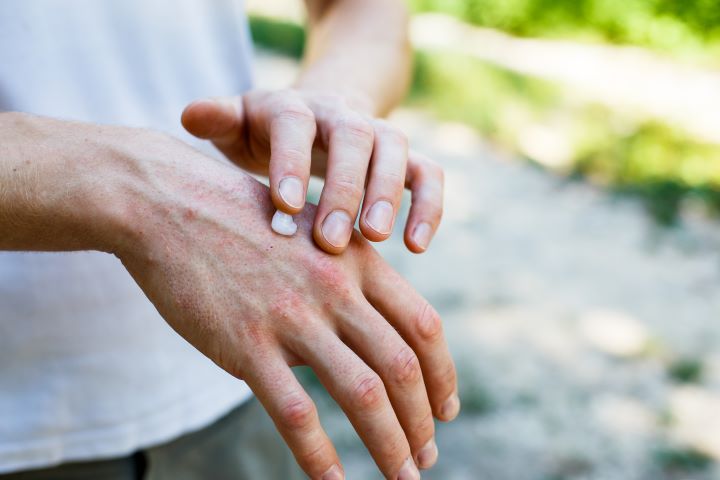Effective Eczema Treatment: Understanding Symptoms and Finding Relief
Eczema, a chronic skin condition affecting millions worldwide, can be both uncomfortable and frustrating. This article delves into the various aspects of eczema treatment, exploring its symptoms, causes, and effective management strategies. Whether you're seeking medical interventions or natural remedies, understanding your options is crucial for finding relief from this persistent skin ailment.

What are the common symptoms of eczema?
Recognizing eczema symptoms is the first step towards effective treatment. The most prevalent signs include dry, itchy skin that can become red, inflamed, and scaly. In severe cases, the affected areas may develop small, fluid-filled blisters that can ooze and crust over. Eczema commonly appears on the face, hands, feet, and in the creases of elbows and knees. The intensity of symptoms can vary, with some individuals experiencing mild discomfort while others endure more severe, persistent itching and inflammation.
What causes eczema and who is at risk?
While the exact cause of eczema remains unknown, researchers believe it results from a combination of genetic and environmental factors. Individuals with a family history of eczema, asthma, or allergies are more likely to develop the condition. Environmental triggers such as irritants, allergens, stress, and changes in temperature or humidity can exacerbate symptoms. Additionally, certain occupations that involve frequent hand-washing or exposure to harsh chemicals may increase the risk of developing eczema, particularly on the hands.
What are the most effective medical treatments for eczema?
Medical treatments for eczema focus on reducing inflammation, relieving itching, and preventing flare-ups. Topical corticosteroids are often the first line of defense, helping to reduce inflammation and itching. For more severe cases, doctors may prescribe oral corticosteroids or immunosuppressants. Topical calcineurin inhibitors, such as tacrolimus and pimecrolimus, can be effective in treating eczema without the side effects associated with long-term steroid use. Antihistamines may also be recommended to alleviate itching and improve sleep quality for those with nighttime symptoms.
How can lifestyle changes and home remedies help manage eczema?
Incorporating lifestyle changes and home remedies can significantly improve eczema management. Keeping the skin moisturized is crucial; apply fragrance-free, hypoallergenic moisturizers immediately after bathing to lock in hydration. Using gentle, soap-free cleansers and taking lukewarm showers can help prevent skin irritation. Identifying and avoiding personal triggers, such as certain fabrics, foods, or environmental factors, can reduce flare-ups. Stress management techniques like meditation or yoga may also be beneficial, as stress can exacerbate eczema symptoms.
What natural remedies and alternative therapies show promise for eczema relief?
Several natural remedies and alternative therapies have shown potential in alleviating eczema symptoms. Colloidal oatmeal baths can soothe itchy, inflamed skin, while coconut oil’s antimicrobial properties may help prevent skin infections common in eczema-prone individuals. Some people find relief with evening primrose oil or borage seed oil supplements, which contain gamma-linolenic acid, an omega-6 fatty acid that may reduce inflammation. Acupuncture and acupressure have also been explored as complementary treatments, with some studies suggesting they may help manage itching and inflammation associated with eczema.
What are the latest advancements in eczema treatment?
Recent advancements in eczema treatment have expanded the options available to those seeking relief. Biologic drugs, such as dupilumab, target specific components of the immune system involved in eczema, offering new hope for individuals with severe, treatment-resistant cases. Phototherapy, which involves exposing the skin to controlled amounts of ultraviolet light, has shown promise in reducing inflammation and itching. Additionally, researchers are exploring the potential of topical Janus kinase (JAK) inhibitors, which work by blocking specific inflammatory pathways in the skin.
| Treatment | Type | Potential Benefits | Estimated Cost Range |
|---|---|---|---|
| Dupilumab | Biologic | Targets immune response | $2,500 - $3,500 per month |
| Phototherapy | Light therapy | Reduces inflammation | $30 - $100 per session |
| Topical JAK inhibitors | Prescription cream | Blocks inflammatory pathways | $500 - $1,000 per month |
| Crisaborole | Topical PDE4 inhibitor | Reduces inflammation | $600 - $900 per tube |
Prices, rates, or cost estimates mentioned in this article are based on the latest available information but may change over time. Independent research is advised before making financial decisions.
In conclusion, effective eczema treatment often requires a multifaceted approach, combining medical interventions with lifestyle modifications and natural remedies. By understanding the various treatment options available and working closely with healthcare providers, individuals with eczema can develop a personalized management plan to achieve long-term relief and improved quality of life.
This article is for informational purposes only and should not be considered medical advice. Please consult a qualified healthcare professional for personalized guidance and treatment.
The shared information of this article is up-to-date as of the publishing date. For more up-to-date information, please conduct your own research.




